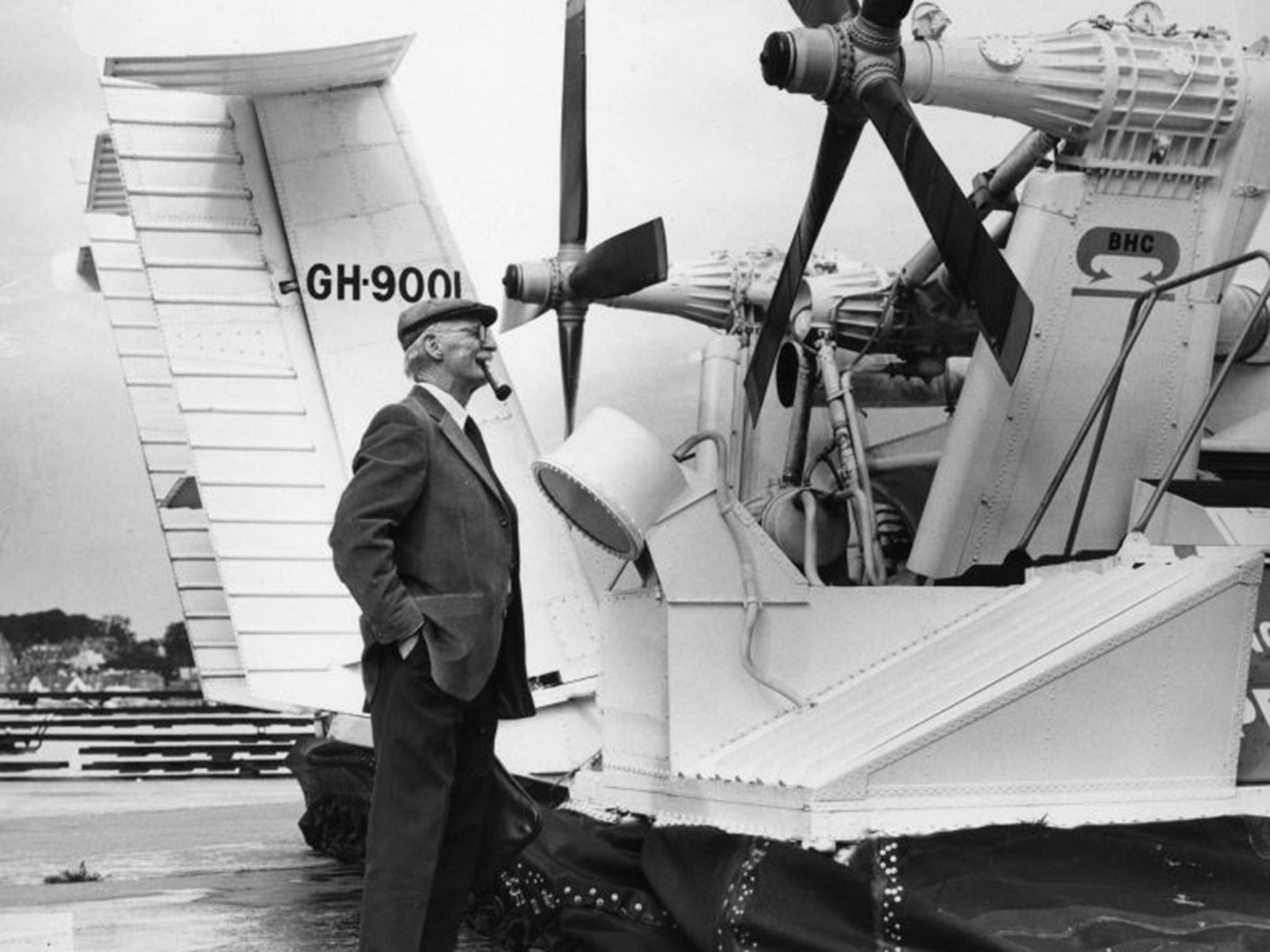Brexit will bring back the cheap duty-free cigarettes of the hovercraft days
The Man Who Pays His Way: What has the government been smoking?

Your support helps us to tell the story
From reproductive rights to climate change to Big Tech, The Independent is on the ground when the story is developing. Whether it's investigating the financials of Elon Musk's pro-Trump PAC or producing our latest documentary, 'The A Word', which shines a light on the American women fighting for reproductive rights, we know how important it is to parse out the facts from the messaging.
At such a critical moment in US history, we need reporters on the ground. Your donation allows us to keep sending journalists to speak to both sides of the story.
The Independent is trusted by Americans across the entire political spectrum. And unlike many other quality news outlets, we choose not to lock Americans out of our reporting and analysis with paywalls. We believe quality journalism should be available to everyone, paid for by those who can afford it.
Your support makes all the difference.Twenty autumns ago, the cross-Channel hovercraft levitated noisily off towards oblivion.
In the final quarter of the 20th century, hovering between Kent and France was big business. Hoverlloyd built a vast international hoverport in 1969 at Pegwell Bay, close to Ramsgate, with a link to Calais. Its rival Seaspeed, part of British Rail, shuttled between Dover and Boulogne. For many years, the rail-hover-rail link was the fastest alternative to flying between London and Paris.
A Channel crossing time of barely half-an-hour – three times faster than the ferry – was part of the appeal. But the real secret of the hovercraft’s success? Duty-free.
These giant craft, sharing mechanical DNA with the humble hairdryer, burnt a prodigious amount of fuel as they crossed the Strait of Dover on a cushion of air. They were ferociously thirsty. Conveniently, so were their passengers.
The hovercraft was kept aloft on a financial cushion funded by onboard sales of alcohol and tobacco. In the best example ever of wasteful travel, in the late 1990s, a newspaper promotion offered to pay motorists £1 if they agreed hover to France and back – in the expectation that on-board sales would more than make up for it.
Elsewhere in Europe, transport enterprises never reached the stage of paying passengers to make unnecessary journeys – but the thrifty traveller could make full use of the Butterfahrt or “butter voyage” to cut costs. This was the Baltic version of the “booze cruise”.
Ferries shuttled between Germany and Denmark with enough time in international waters to allow hungry, thirsty and nicotine-starved Scandinavians to buy cheap dairy goods, beer and cigarettes.
You showed up at Kiel and asked for a boat to Sonderborg. The booking clerk would solemnly tap some keys and hand you a return ticket showing your fare as 0 Deutschmarks. The expectation was that you would spend freely and sail back on the same vessel, but there was nothing to stop you jumping ship at the Danish port and heading for Copenhagen.
This show could not go on: finance ministers saw revenue flowing away; health officials fretted about the human damage; and the green travel movement, though still in its infancy, rightly objected to the environmental impact of floating supermarkets. Duty-free for journeys within Europe duly ended in the summer of 1999.
Hoverspeed – the result of a merger to cut costs and competition – limped on between Dover and Calais for another season. But, with its key market motivator abolished, it could not continue. And while “duty-free” lived on as a shorthand for airport retail, for EU travellers including Britons the goods in those shiny shops, on ferries too, were all taxed at local rates from 1999. The upside, of course, is that there is no limit on what you can carry across EU frontiers.
From 1 January 2021, though, the clock goes back. UK travellers will be treated exactly the same as the rest of the world when in the EU – meaning they can buy and bring back cheap cigarettes and alcohol at duty-free stores.
The British Medical Association was appalled when I told them that Brexit means cheap smokes, saying: “Anything that increases the availability of tobacco is a negative step for public health.”
What, you may wonder, has the government been smoking? A policy that encourages journeys where the main purpose is to buy cheap cigarettes is a disaster. But many Brexiteers seem happy to turn back the clock. However they take their tobacco, it’s a pipe dream come true.



Join our commenting forum
Join thought-provoking conversations, follow other Independent readers and see their replies
Comments